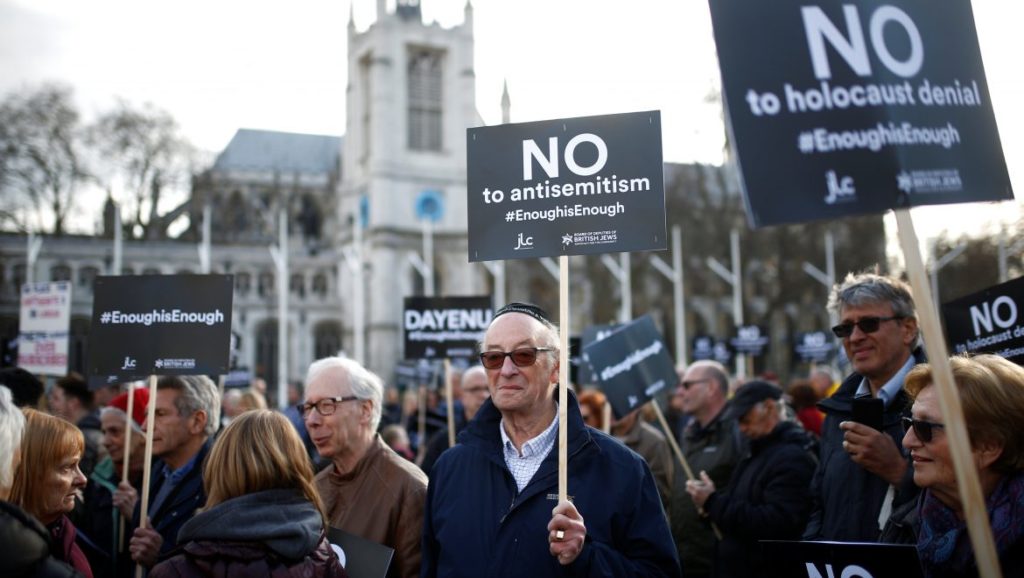The two of us were sitting rather awkwardly on small, uncomfortable, metal, foldable chairs.
The location was a function room of a local club in Manchester, in the north west of England. We had both gone there to attend our first meeting at our local constituency Labour party, the base of local left wing party politics in Britain. Eager, excited and not at all certain about what we had gotten ourselves into, we sat patiently whilst those gathered around us were engaged in general chatter and small talk, waiting for the meeting to commence.
The man in charge of the meeting and, I believe, the then chair of our constituency Labour party stood to address the members gathered. He was grey haired, slightly hunched, and wearing what I think was an old dark green wax jacket, which I don’t think he took off during the entirety of the two hour meeting. When it appeared everyone he expected had arrived, he stood to face those gathered, gestured for silence and said “Good evening Comrades, before we begin, please can I ask everybody to stand for the red flag”.
This is now over nine years ago. The instruction caused both myself and the man of a similar age sitting next to me to turn to look at each other in mild bemusement. This kind of 1980s socialism was not really what we had expected from the party of New Labour. Smiling at each other, in order to mask our semi-embarrassment, we both stood up and respectfully waited for the apparent customary playing to finish.
Following the awkward start, the meeting was fun, full of energy and everyone there was incredibly welcoming and positive. To be sure, there were a lot of disagreements, but they all largely played out respectfully. I and the man next to me had both joined following the defeat of Gordon Brown and a decade of Labour governance.
We both believed, naively, that then government under David Cameron would not last. We believed that, with a change of leadership and a shift leftward, towards the parties supposed “roots”, Labour would return to office. Looking back now from the vantage point of nine years later, it is astonishing how collectively naïve we were.
It has now been twelve years since the British left, the Labour party, last won a general election. Even longer, forty five years, since the left won a national vote without Tony Blair as leader. Its last election win without him as its leader being in 1974 under Harold Wilson. Since Blair left office in 2007, Labour have failed to win three general elections in a row, in 2010, 2015 and now 2017.
In addition, they have repeatedly failed to make gains, even losing seats, in local elections, a situation relatively unheard of for a party in opposition for this long. Worse still, they have been wiped off the map in Scotland, much of the South of England, are declining in Wales, and were pushed into third place behind both the Brexit party and the Liberal Democrats in the European elections this year.
Even more bitterly, it doesn’t look like there are any grounds for optimism. Looking towards future general elections, current polls published so far in August this year put them between nine or ten points behind the governing Conservative party under Boris Johnson, currently in its ninth year as a governing party.
So what do we know about why this is happening? Well, it does not appear to be as a result of the competence or overwhelming popularity of the governing Conservative party. The last decade has seen the party fall from one calamity to another. One Prime Minister, David Cameron, lost a referendum he staked his reputation on winning, and another, Theresa May, called a disastrous snap election she promised she would never hold, losing a 20 point lead in the opinion polls in the process, before hobbling on hopelessly from one humiliation to another.
Additionally, the party has overseen many unpopular policies, including a large fiscal retrenchment and austerity program, industrial disputes with doctors, a disastrous restructuring of the nations beloved NHS under the 2010-2015 coalition government, and recently bungling its Brexit negotiations. Moreover, until relatively recently, inflation was outpacing wage growth, leading to one of the longest squeezes of living standards since the second world war.
In theory, therefore, this was an eminently beatable Conservative party that a capable opposition should have easily been able to dispatch of. This, however, is something that has proven repeatedly beyond three successive Labour leaders since Tony Blair. Gordon Brown, at the end of a decade in power, seemed stale and exhausted. Ed Miliband was perceived as awkward and inauthentic. Its current leader, the socialist Jeremy Corbyn, whilst also seemingly unable to move forward electorally, seems worse and to be doing actual real harm to the party.
On the 28th of May this year Britain’s Equality and Human Rights Commission, the non-governmental body responsible for enforcing human rights legislation within the country, launched an investigation into the party. It cited as its aim, to find out whether “the Labour Party has unlawfully discriminated against, harassed or victimised people because they are Jewish”.
It is an event which would have been unimaginable during that meeting when I joined the Labour party nine years ago. The only other party to have been investigated by the commission being the far right British National Party. The crisis has been slowly engulfing the party for more than four years.
The leadership initially tried to get to grips with the issue by launching an independent inquiry into antisemitism within the party, chaired by the respected human rights layer Sharmi Chakrabarti. The report argued that anti-semitism and racism were not endemic within the party.
However, following the publication of the report, Chakrabarti joined the party, was nominated for a peerage by Mr Corbyn, and then became one of his shadow ministers. Such a turn of events, obviously, removed any credibility the report could potentially have had with British Jews. Making matters worse, a Jewish Labour MP was heckled at the publication of the inquiries findings, eventually leaving in tears.
Since the crisis started there have reportedly been over 862 complaints reported to the party, though progress in investigating them has reportedly been slow. Two MPs have been suspended, one for claiming the party had “been too apologetic for anti-Semitism” and another for sharing an image showing Israel wiped off the map of the middle east and moved to the United States, with the caption reading “solution”.
Its former Mayor of London left the party before being expelled, after repeatedly arguing that Hitler had collaborated with “Zionists”. Additionally, members have been suspended with various reported examples of antisemitism including claims that Jewish people were responsible for the slave trade and even holocaust denial.
It is not just members who have faced accusations of antisemitism, but Jeremy Corbyn himself. A video emerged of him allegedly partaking in the laying of a wreath to commemorate the terrorists behind the 1972 Munich massacre.
A second recording showed him accusing British Jews of failing to understand “English Irony”, despite “having lived here a very long time”. Moreover, In 2018 he defended a mural which seemingly depicted a table balanced on the back of the world’s workers, upon which Jewish men appeared to be playing poker.
It is striking, therefore, given the party’s current state, to look back at that first time attending a meeting of my then local constituency Labour party nine years ago. Myself and the man I had met sat next to me were enthusiastic and optimistic about the future. We were both twenty one, had just joined and were happy to get involved in canvasing voters and delivering leaflets for our local party.
We believed that it would not be long before Labour were back in government and we were keen to be involved in making it happen. It would have seemed beyond absurd back then to imagine, nearly ten years later, Labour would have lost two more general elections.
It would have appeared yet more ludicrous still to imagine it would have become engulfed in a seemingly endless crisis of anti-Jewish racism and an investigation by the Equality and Human rights commission. But beyond the party itself, and of greater importance still, is the question of the country.
The lack of an effective opposition has consequences. It allows a dysfunctional governing party to prosper without proper or effective scrutiny. It is a problem of major importance and significance, as to just how long Britain will have to endure this sorry and dysfunctional left?
Sam Jenkinson


